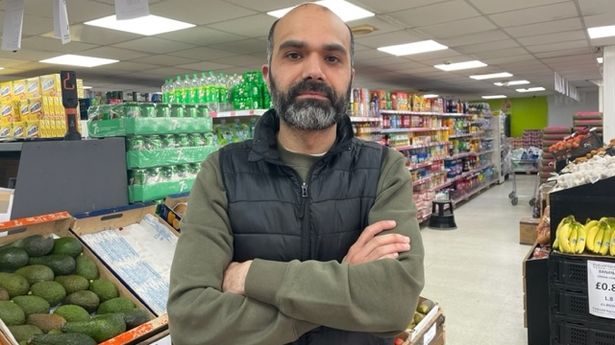Muslims in the United Kingdom have expressed worry about how growing expenses could affect their Ramadan festivities.
During the month of Ramadan, Muslims will observe a daytime fast.
They will break their fast at sunset, a ritual known as Iftar, where friends, family, and members of the community frequently assemble to share a huge feast.
Yet, due to increased food and energy prices, several individuals have expressed concern about their financial stability this year.
Ramadan and Eid are significant occasions for almost four million individuals in the United Kingdom.

Suhoor is the predawn meal that marks the beginning of the daily fast.
According to a recent study of 236 British Muslims conducted by Nano Interactive, over half of British Muslims indicate that the cost-of-living problem has already affected their Ramadan and Eid preparations.
41% believe they are less likely to dine out for Iftar and will instead choose for home-cooked meals, while 42% anticipate to spend less than £30 per person on Eid presents this year, with two-thirds saying this is “far less” than they spent last year.
When preparation for Ramadan this year, an additional 40% of those questioned stated they were shopping at budget-friendly food stores such as Lidl or Aldi.
One mother of two told Birmingham Live that she has seen a significant increase in the price of fundamental foods in recent months.
She said: “I have purchased three bags of goods for £60. I worry.
“People are invited to our home for Iftar. I shall invite fewer guests to Iftar since we will only have enough food for our immediate family.”
Shabina Bano, a councilwoman and mother of five from Small Heath, told the magazine that her weekly food price may increase from £120 to £200 during Ramadan.
Shabina stated that she would prepare more vegetarian dishes in an effort to reduce expenses.
She went on: “I have compassion for those in need who will rely on food banks. In areas where the price of gas and electricity has increased, mosques will open their doors.”
Muslims talk about how rising prices
Ibrahim Abbasi, the owner of the independent food store Foodworld in Birmingham, told BirminghamLive that he was compelled to increase prices after his annual expenses increased from £1 million to £1.7 million.
He elaborated: “A large number of consumers now pay for necessities using credit cards, when before they would have used cash or debit cards, and trolley shoppers have transitioned to baskets.
“They wander from store to store picking up random items and making do. Since prices have increased to such a high level and stabilized since their peak, I do not anticipate a decline.”
“We are attempting to discover as many Ramadan offers as possible so that we can provide our customers affordable pricing.”

